#Napoleon threatened
Explore tagged Tumblr posts
Text
I’m very bad at social media but on the other hand I keep complaining that nobody cares about my creations and it’s like a vicious circle and I don’t know what to do with it.
Also, I have been experiencing a kind of a Tolkien burnout recently, and I feel particularly bad about it.
So, anyway… have my latest passion project - Autumn court waistcoat inspired by ACOTAR series. Maybe it will be a full Eris Vanserra cosplay although I don’t particularly love the series.
I have copied the pattern from 1760s waistcoat and I got inspired in the Napoleonic uniforms for the embroidery.
The waistcoat is made from synthetic silk brocade, embroidered with metal (I love the gold work and the oak leaves make me feel very heroic and empowered, lol).
The shirt is a classical 1700s shirt and my first attempt at historical sewing.
Is anyone interested in these irregular screams into the void?
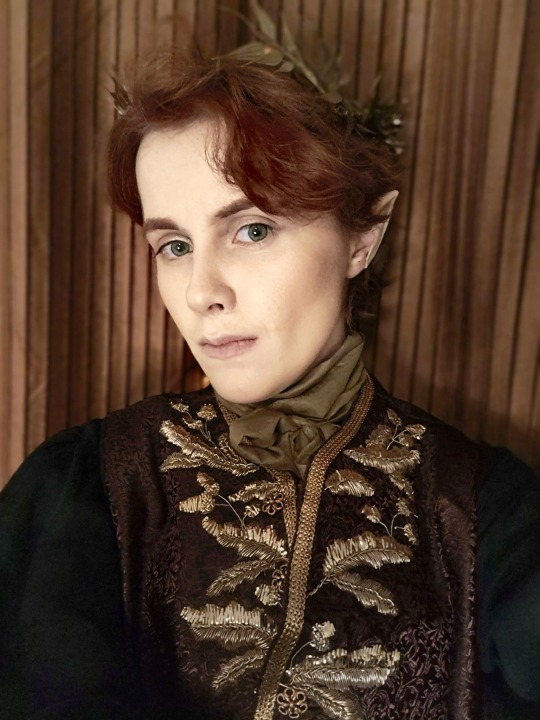
#this embroidery technique will make everything look absolutely splendid although my embroidery skills are nonexistent#I might or might have not threatened to throw it out the window at one point#the ginger on a ginger background is obviously my kind of ginger camouflage#the quality of the picture is so bad it looks like I took it on a typewriter#eris acotar#eris vanserra#goldwork#embroidery#historically accurate#historical clothing#18th century#napoleonic era
94 notes
·
View notes
Text
“Well,” said Lestrade, “I've seen you handle a good many cases, Mr. Holmes, but I don't know that I ever knew a more workmanlike one than that. We're not jealous of you at Scotland Yard. No, sir, we are very proud of you, and if you come down to-morrow there's not a man, from the oldest inspector to the youngest constable, who wouldn't be glad to shake you by the hand.”
“Thank you!” said Holmes. “Thank you!” and as he turned away it seemed to me that he was more nearly moved by the softer human emotions than I had ever seen him.
Ever since I watched the Jeremy Brett adaption which had Holmes actually tear up at this part, I’ve been musing on what in particular about this compliment had him affected so deeply. He gets praise all the time! He’s always dazzling or confounding those around him!
But I think there’s just something about someone telling him they’re proud of him hit a nerve. I feel it’s very likely that this is the first time he’s ever heard it. What vague hints we get about his family is anything but warm. He sought out a father figure with Victor Trevor’s father, but only frightened him. Mycroft is smarter and more respectable and anything but emotionally effusive.
Watson is full of praise bordering on worship, but I think Holmes was starved for someone being proud of him in a way he’s not even conscious of himself. Oh he loves to dazzle, to be sure, and doesn’t hesitate to fish for it. He’ll blush at applause but cry at ‘I’m proud of you.’
#letters from watson#the six napoleons#this plays into all of my hcs about his childhood + home life#that he was seen as a Handful or ignored at best#there’s also Something about this coming from someone who had been so threatened by him before#but has a nice little character arc of his own
67 notes
·
View notes
Text
the main premise of temeraire is what if they had dragons in the napoleonic wars. the secondary premise of temeraire is if you're an honourable naval captain with a strong sense of duty and justice that causes you to constantly threaten that honour with your deep-seated psychologically revealing righteous fury everyone will want to fuck you so bad it makes them look stupid including napoleon and the dragon.
#🐉#will laurence: im will laurence#basically everyone he meets: tormented with lust for some fucking guy#temeraire
3K notes
·
View notes
Text

"Two distinct patterns of antisemitism can be identified by the Jewish holidays that celebrate triumphs over them: Purim and Hanukkah.
In the Purim version of antisemitism, exemplified by the Persian genocidal decrees in the biblical Book of Esther, the goal is openly stated and unambiguous: Kill all the Jews.
In the Hanukkah version of antisemitism, whose appearances range from the Spanish Inquisition to the Soviet regime, the goal is still to eliminate Jewish civilization. This goal could theoretically be accomplished simply by destroying Jewish civilization, while leaving the warm, de-Jewed bodies of its former practitioners intact....[The regime] isn’t antisemitic but merely requires that its Jews publically flush thousands of years of Jewish civilization down the toilet in exchange for the worthy prize of not being treated like dirt, or not being murdered."
Dara Horn, "People Love Dead Jews"
THE ORIGINS OF THE LEFT AND LEFT-WING ANTISEMITISM
The left-right political spectrum is a rather recent phenomenon of history. In fact, prior to the late 18thcentury, there was no particular set of political viewpoints or values associated with either the “left” or the “right.” The terms came into use during the French Revolution (1789-1799); those loyal to the king were considered “right-wing,” whereas the revolutionaries were considered “left-wing.” Needless to say, antisemitism long predates these designations.
It was in the midst of the French Revolution that France’s Jews, long subjected to statelessness and limited rights, were first emancipated. On the surface, this was a positive development. For the first time in European history, Jews were granted the opportunity to live as equals. Under one condition.
Jews could no longer exist as a distinctethnic, cultural, and national minority and were to assimilate into French society as French citizens. Napoleon Bonaparte himself believed that in systematically stripping the Jewishness from the Jew, he could turn Jews into “good citizens.” He also claimed to do this in pursuit of a “universal liberty of conscience.”
This, unfortunately, remains emblematic of much of the antisemitism we still see on the left today. Many left-wing antisemites may not want to physicallyeradicate Jews, but they sure work hard to eradicate the qualities that make us distinctly Jewish, oftentimes under the banner of "human rights" or "equality."
"The Jews should be denied everything as a nation, but granted everything as individuals."
French revolutionary Count Stanislas de Clermont-Tonnerre, 1789
"[It is necessary to] reduce, if not destroy, the tendency of Jewish people to practice a very great number of activities that are harmful to civilization and to public order in society in all the countries of the world. It is necessary to stop the harm by preventing it; to prevent it, it is necessary to change the Jews…Once part of their youth will take its place in our armies, they will cease to have Jewish interests and sentiments; their interests and sentiments will be French."
Napoleon Bonaparte, 1806
THE SOVIET UNION (PRE-WORLD WAR II)
The far-left Soviet Union was hostile to non-Russian forms of nationalism that might threaten Soviet hegemony or rule. For this reason, shortly after its establishment, the regime began targeting Zionists.
In 1918, the Soviet Communist Party established a “Jewish branch,” with the consent of Vladimir Lenin. It was named “Yevsektsiya,” meaning “Jewish Sections of the Communist Party.” The mission of the Yevsektsiya was, quite literally, the “destruction of traditional Jewish life, the Zionist movement, and Hebrew culture.”
From the outset, the Yevsektsiya began harassing Zionist Jews. Initially, the Yevsektsiya legally abolished the “kehillas,” the traditional Jewish community organizations. Sometimes, they even burned their offices down. They shut down everything from Jewish political groups to theaters to sports clubs. They raided all Ukrainian “Zionist” offices and arrested every single one of their leaders. They worked to “de-Hebraize” Yiddish by changing the spellings of all Yiddish words that came from Hebrew.
Until their dissolution in 1929, they imprisoned, tortured, and murdered thousands of Jews. According to historian of Soviet history Richard Pipes, “In time, every Jewish cultural and social organization came under assault.”
THE SOVIET UNION (POST-WORLD WAR II)
In the immediate aftermath of World War II, the Soviet Union went through great lengths to deny the specifically antisemitic nature of the Holocaust. For example, they erected a memorial for the Babyn Yar Massacre, in which 34,000 Jews were slaughtered over the course of two days, but never mentioned its Jewish victims, instead labelling it a massacre of “the peaceful Soviet people.”
The Soviet Union also persecuted members of the Jewish Anti-Fascist Committee who worked to document evidence for the Holocaust.
As before World War II, the Soviets worked hard to suppress Jewish cultural and spiritual life, stripping many Jewish families of thousands of years’ worth of history. For example, though not officially illegal, Jews were punished for speaking or studying Hebrew or participating in religious traditions. Jews were not allowed to assimilate into Soviet society due to their ethnic background, but they were also criminalized if they tried to hang on to their ancient traditions, ultimately resulting in a catch-22. Oftentimes, Jews were imprisoned under false pretenses, with the Soviet government accusing them of “Zionist crimes.” People with Jewish last names were subject to highly restrictive university quotas or banned from performing certain jobs.
"Hitler wanted to destroy us physically. Stalin wants to do it spiritually."
Peretz Markish, Jewish Anti-Fascist Committee, before his 1949 execution

In its Tisha B’Av guide, “Jewish” Voice for Peace encourages participants to pray in Arabic or English, rather than in Hebrew, the language Jews have been praying in for three millennia, because our ancestral language, which predates the Israeli-Palestinian conflict by thousands of years, could be “deeply traumatizing for Palestinians.”
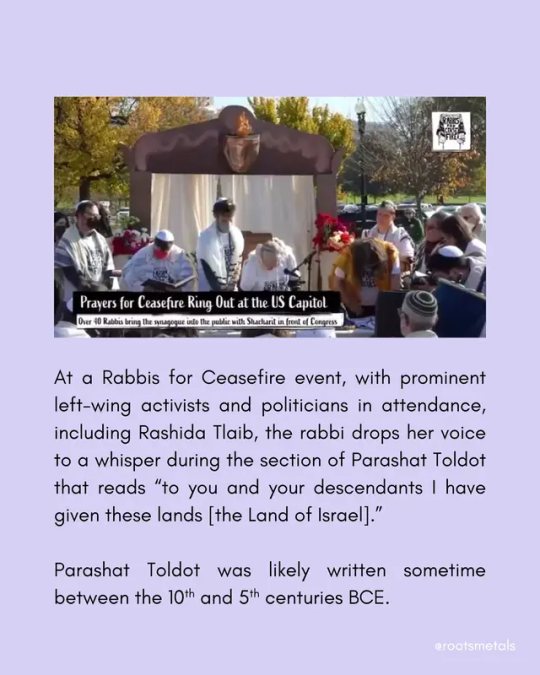
Video here.
At a Rabbis for Ceasefire event, with prominent left-wing activists and politicians in attendance, including Rashida Tlaib, the rabbi drops her voice to a whisper during the section of Parashat Toldot that reads “to you and your descendants I have given these lands [the Land of Israel].”
Parashat Toldot was likely written sometime between the 10th and 5th centuries BCE.
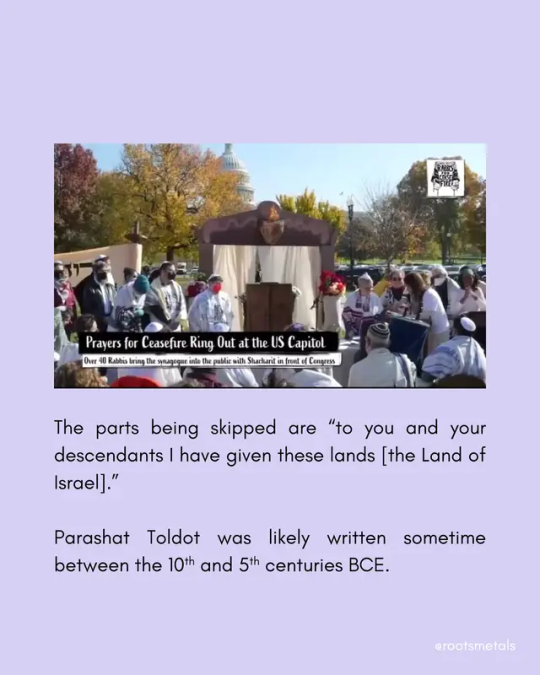
Video here.
The parts being skipped are “to you and your descendants I have given these lands [the Land of Israel].”
Parashat Toldot was likely written sometime between the 10th and 5th centuries BCE.
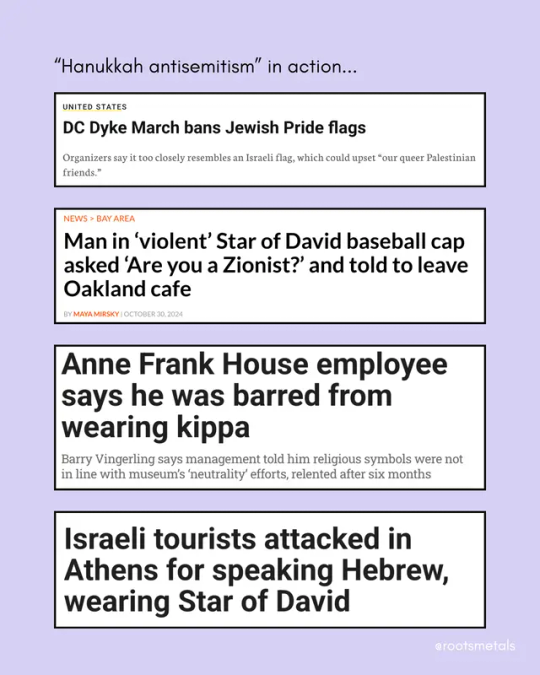

SOME (APPARENTLY NECESSARY) DISCLAIMERS
(1) “Hanukkah antisemitism” did not originate with the left. This is not the point I am arguing. After all, the French Revolution took place some 1,956 years after the Maccabean Revolt.
Other prominent, earlier examples of “Hanukkah antisemitism” include the Spanish Inquisition and the forced conversions to Islam that periodically happened throughout the Muslim and Arab worlds.
(2) If there’s anything that was made clear after the celebrations following October 7, it’s that “Purim antisemitism” very much exists on the left as well.
(3) Yes, of course antisemitism – including “Hanukkah antisemitism” – also exists on the right. Again, I am not arguing that antisemitism only exists on one side of the political spectrum, or that it’s only dangerous on one side of the political spectrum.
(4) Rather, the point of this post is to illustrate that “Hanukkah antisemitism” has long been rampant in left-wing, so-called progressive, and/or liberal circles. Under the guise of “equality” and “human rights,” antisemites have worked to strip us of our distinctly Jewish identities.That is not to say everyone on the left is an antisemite, either. Obviously.
For a full bibliography of my sources, please head over to my Instagram and Patreon.
rootsmetals
Please read the disclaimers before you argue with me in the comments about things I never said 😅
94 notes
·
View notes
Text
DAY TWO OF THE HERMITCRAFT CHARITY LIVESTREAAAAAAAM
i wont be able to summarize the entire thing as i have rehearsal this afternoon... but i can get the first half at least!!
link to my day one liveblog
very short intro from the hermits as grian and scar are interviewing jared hess, the director of the minecraft movie!
"He's a tall drink of water, that guy," -- Jared Hess, directer of the minecraft movie, talking about Mumbo Jumbo. (and. he's taller then mumbo.)
apparently mumbo designed a ton of redstone machines for the movie that didnt end up being used
scar keeps derailing the interview to ask about napoleon dynamite
sign purchases have been reopened for everyone in europe who was asleep. im tempted to buy a second one lol
doc in chat
they've rigged the wheel for snails
400k wheel spin landed on......... SNAILS.
MINECRAFT IN CHAT
chat is making snails... _@/"
grian tried to imitate oli's snail noises and summoned oli in the process. oli is now yelling in the chat
oli and eloise have threatened to throw their cat out the window if we dont donate
joe is green-screen colored and is being consumed by the background
according to false the snails are sedated and that's why their not murderous right now
treebark making bracelets with gem <3
the steam has only been going for about an hour and we've already hiiiiiiit:
FIVE HUNDRED THOUSANDDDDDDDDDDDDDDDDDDDDDDDDDDDDDDDDDDDDDDDDDDDDDDDDDDDDDDDDDDDDDDDDDDDDDDDDDDD
i mentioned to my family that the charity has raised over 500k in this short a time and that did kinda blew their minds. i think they're starting to realize my niche hyperfixation isnt so "niche" afterall lololol
jimmy and kirsty have acknowledged their ship name is jirsty and they are not happy about that
OLI ON THE ROBOT???? OLIBOT?????
RAN INTO MY FRIEND @pookapufferfish IN THE CHAT HI POOKA!!!!!!!
martyn broke the mojang coffee machine. rip.
now martyn is lost in joel's base. the main stream has been on him wandering around joel's base, helplessly lost, for like 15 minutes now
but now it's MYSTERY HERMIT TIIIIIIIIME
doc is trying to make small talk with chat. from in chat.
minecraft old nether music on the waiting screen goes hard
OKAY NOW IT'S MYSTERY HERMIT TIME
pearl scar and gem are the detectives, zed is hosting
they are prompting a mystery hermit who's ona call to do certain things and then trying to guess who the mystery hermit is.
detectives first asked them to do parkour, theorizing one of the arizona dads. second asking them to put things in an ender chest (THEY PUT FLIGHT DURATION 3 ROCKETS IN THE CHEST IM CALLING JOEHILLS). third, asking them to decorate an interior. four, asked them what they want to remove from minecraft, they said pink glazed terracotta. five, keep name kill a mob, kept and evoker, named a creaking (creakles), killed a sniffer
all three judges voted they think it's tango. it waaaaaaaaas
TANGOOOOOOO
okay ive got to go for a sec so i might miss this next one
i wasnt able to like fully watch the next two but they guessed cub for number 2 and it was cub, and they guessed false for number 3 and it was xisuma!!
okay i havent been able to watch for about an hour... hope i didnt miss too much ._.
SNAIL RACING WOOHOO
escargo vs gary vs quizbot vs oli in robot form
ESCARGO VICTORY!!!!! olibot takes second lol
okay i for sure wont be able to watch the rest of the stream live at least, if anyone wants to take over for liveblogging the second half of day 2 please do so!!! i want to know what happens :)
HI EDITING ARDIE HERE IM BACK FROM REHEARSAL!!!! IT WAS GOOD THANKS FOR ASKING
YES IM GOING TO CONTINUE LIVEBLOGGING. THE 3ISH HOURS I MISSED WILL BE MISSING BUT IM GONNA GET THE REST OF IT 👍
so uh. check this post for updates. it will be updating.
while i was away, by the way, we hit
SIX HUNDRED THOUSANDDDDDDDDDDDDDDDDDDDDDDDDDDDDDDDDDDDDDDDDDDDDDDDDDDDDDDDDDDDDDDDDDDDDDDDDDDDDDDDDDDDDDDDDDDDDDDD
and
SEVEN HUNDRED THOUSANDDDDDDDDDDDDDDDDDDDDDDDDDDDDDDDDDDDDDDDDDDDDDDDDDDDDDDDDDDDDDDDDDDDDDDDDDDDDDDDDDDDDDDDDDDDDDDDDDDDDDDDDDDDDDDDDDDDDDDDDDDDDDDDDD
they're doing a "harmonica challenge." shock collars from yesterday but with harmonicas in their mouths, whoever toots first loses. skizz and grian running it but grian isnt allowed to push the buttons anymore lol
jimmy v ren. jimmy loses like a wimp
tango vs zed. tango is a TANK he barely flinches at all
championship, ren v tango. grian hits tango with a level 15 near instantly and he understandably breaks but ren does NOT want to try and compete with that and forfeits. tango is the ultimate pain tolerance man!!!
back to scar who's running the whole thing. he's really tired you can tell... he's very quiet. also i think i hear some of his medical gear making noise
GIGS PHASMO!!!
we cut to pearl for a bit. pearl without aussie ping is SCARY
scar is still talking-- he put on the pink minecarft movie jacket. looked very snazzy. then slipped out of his chair trying to get it off ._.
SCAR HAS A BOW AND ARROW. HOTGUY HOTGUY HOTGUY (im guessing this was a wheel incentive i missed)
AND CONFIRMED-- SCAR IS NOW ON THE BOARD OF DIRECTORS FOR GAMERS OUTREACH AHHHHHHHHHH <3 <3 <3 <3 <3
gettin reaaaaaal close to 800k... can we beat the amount raised last year...
PI DRIVE. DONATING $3.14... if we hit 800,000 someone's gonna get pied...
oh and every time scar sees an anonymous donor pop up he assigns a star wars name to the anon.
SOMEONE DONATED WITH THE NAME "THE SECRET LIFE SHADOW PEOPLE" AND SCAR WAS LIKE. YEAH.
scar shot an arrow and hit his dad in the eye.
MARTYN SPITTIN NAMES TIME WOO
i donated a slice of pie. martyn butchered my name <3
OKAY HOLY SHIT THE LAST 30 MINUTES HAVE BEEN VERY CHAOTIC IN THE BEST WAY POSSIBLE
so. i had a tutoring session. and my tutor and i got chatting and i told her about this and kinda maybe hyperfixation rambled for a while and she was really interested and super into it and sent me some money to donate to the charity!!! which was very nice of her!!!!!!! everyone say thank you to my tutor julie <3
and then we hit:
EIGHT HUNDRED THOUSANDDDDDDDDDDDDDDDDDDDDDDDDDDDDDDDDDDDDDDDDDDDDDDDDDDDDDDDDDDDDDDDDDDDDDDDDDDDDDDDDDDDDDDDDDDDDDDDDDDDDDDDDDDDDDDDDDDDDDDDDDDDDDDDDDDDDDDDDDDDDDDDDDDDDD
🎉🎉🎉
and then the broadcast cut away for a bit and when it came back...
it was the closing out!! all the hermits all together... plus the head guy from gamers outreach
WHO THEY PIED. AS A CELEBRATION OF 800K.
and... that was the end. and the closing screen played the permit office hold music :)
same as yesterday, i'll reblog this with all the screenshots i took today!!
also the donations page is still up and open, if anyone has a couple bucks to spare and is interested!! https://tilt.fyi/xEs9UP5TXv
thank you to the hermits for putting on such a phenomenal show <3
#hermitcraft#hermitcraft charity stream#hermitcraft charity event#grian#goodtimeswithscar#mumbo jumbo#inthelittlewood#oli orionsound#joe hills#cubfan135#renthedog#tangotek#jimmy solidarity#pearlescentmoon#i might be missing people but i really gotta go now lol
76 notes
·
View notes
Text
IkeVamp chars reacting to someone harassing you
A/N = stepping into the waters of ikevamp Edited 5.10.25 = I edited some and uhh I added the missing people I'm so very sorry
Napolean Bonaparte
Napoleon would look the harasser up and down, then his voice goes on to lecture the harasser.
"Leave now, or I’ll make you wish you had." He would say as his gaze sharpens, hinting at his military background. "This will not end well for you if you continue."
If the harasser doesn't take him seriously, Napoleon's not gonna be as nice as before. "You’re testing the wrong person. Do you really want to deal with the full weight of my wrath?"
Wolfgang Amadeus Mozart
Mozart would dramatically throw his hands up in exasperation, his tone playful yet scathing.
"Oh, how clever of you to harass someone who’s so clearly out of your league! Tell me, is this your best performance?" He'd laugh mockingly.
If the harasser doesn't back off, Mozart would quip, "You’ve already missed your chance to impress me, darling. Best leave before you make a fool of yourself."
Leonardo da Vinci
With a calm and inquisitive expression, Leonardo would step forward, his tone collected but firm.
"I find it curious that someone of your... intellect would waste time with such unseemly actions." His voice is steady, as though speaking to an inferior subject.
He’d pause, eyes narrowing, "I suggest you reconsider your actions. People of my stature do not tolerate such behavior. And I’m sure you’re aware of the consequences."
Arthur Conan Doyle
Arthur would straighten up, giving the harasser a cold look and say: "Really? This is your idea of making a lasting impression?"
He’d then calls the harasser directly. "If you think for even a fleeting moment that you have any sort of control here, you’ve gravely underestimated both of us."
"You may want to rethink this, as I’m certain your motives could be better directed elsewhere," he continues calmly threatening. You wonder how he does that.
Vincent van Gogh
Vincent’s normally calm demeanor would crack, his voice trembling with emotion. "You have no right... no right to treat them this way!"
He steps in front of the reader, glaring at the harasser. "You don’t know who you’re messing with, do you? I won't stand for it!"
As the tension builds, Vincent’s face hardens, "Leave them alone, now. I’ll make sure you regret it if you don’t."
Theodore
Theodore would step in between you and the harasser. His voice calm but stern as he calls them out. "This is not the way to behave, and you know it."
He’ll politely and as nicely as he could give the harasser a chance to surrender and back down. "I’d advise you to walk away, before I’m forced to make you understand how serious I am."
If necessary, he’d become more forceful: "I am not one for drama, but I will not let you make this a problem."
Osamu Dazai
Dazai’s initial response would be a smirk, his tone sarcastic. "Oh, how bold of you. You really think you can harass them without consequences?"
He’d lean in slightly, his smile darkening. "You’re funny. But not in a good way."
If things escalate, Dazai’s tone would shift, becoming chilling. "You’ve just made a very bad decision. One I won’t be forgetting anytime soon."
Isaac Newton
Isaac would raise an eyebrow, voice level and logical. "I’m afraid your actions are... quite irrational."
He would calmly explain, "Such behavior is not only disrespectful but also entirely unnecessary. You should consider the consequences of your actions before they escalate further."
"I believe I’ve made myself clear," Isaac would finish, his voice stern with an undercurrent of intellectual superiority.
Jean d'Arc
Jean would stand tall, his voice unwavering as he faces the harasser. "You dare approach them in such a manner?"
He’d take a step forward, eyes burning with determination. "You will not continue this harassment. I will protect them, no matter what it takes."
"This is your last warning," his tone is commanding. "Leave now, before you regret it."
William Shakespeare
With a mocking fake smile, William would deliver his saying as if he was in a theatrical drama. "Thou art a fool, sir. A poor, unfortunate fool!"
His voice is laced with irony. "Do you not see the folly in your actions? I’d advise you to take your leave while there is still time for you to save face."
"For thou shall not win this battle of geniuses," Shakespeare would say. "And in this exchange, you are the one who loses."
Comte de Saint-Germain
Saint-Germain would speak in a low, controlled voice, his rich man tone giving him an air of superiority. "I am not one for unpleasantness, but you’ve given me no choice."
He would tilt his head, an elegant smirk on his lips. "You will leave, now. I assure you, it’s in your best interest."
If the they don't stop, Comte's fake, warm smile would turn into a cold, still fake smile. "You clearly don’t know who you’re dealing with. I suggest you correct that mistake— before I do it for you."
Sebastian
Sebastian’s tone would be smooth and polite, though there’s danger present in it. "Excuse me, sir, but I believe you’ve mistaken this person’s boundaries."
He would take a step closer, don't get it wrong, his voice is still calm but now having an unmistakable threat. "I’m sure you’ll find your behavior unwise in the end."
If the harasser continues, Sebastian would smile coldly. "I won’t repeat myself, but I do expect you to leave— immediately."
Vlad
His eyes narrow the second he notices. He doesn't say anything at first. It's just cold, suffocating silence.
Then he takes a step and another and then he's between you and the harasser. An intimidating calm expression is plastered on his face that’s somehow worse than him yelling.
“You’ve made a grave mistake.” One sentence, low and final. And you never see that person again.
Johann Georg Faust
He tilts his head slightly, an 'analyzing' look at the situation as if it’s a specimen under a microscope.
Then he looks him in the eye. “Do you know what happens to pests in my lab?” he asks, tone eerily gentle.
You blink, and suddenly the harasser is gone. Faust is now smiling at you like nothing happened.
Charles-Henri Sanson
He instantly positions himself in front of you, protective and eerily calm.
“You’re brave to act like that in front of an executioner.” he says in a condescending tone.
He doesn’t need to raise his voice. The energy surroundhing him alone sends the harasser running— unless they’re too stupid to get the hint.
#ikemen vampire#ikevamp#ikevamp x reader#napoleon bonaparte x reader#mozart x reader#leonardo da vinci x reader#arthur conan doyle x reader#vincent van gogh x reader#theodore x reader#osamu dazai x reader#isaac newton x reader#jean d'arc x reader#william shakespeare x reader#sebastian x reader#comte de saint germain x reader#vlad x reader#charles x reader#charles henri sanson#johann georg faust
123 notes
·
View notes
Note
Sexy ratings on all the members of the 3rd Committee?
Let’s see..
Bertrand Barère – I did threaten to have him executed once. That should tell you everything you need to know. Honestly, I should have followed through.. Smirks too much. Tries too hard. 2/10 but only if you’re blind and like being lied to.
Jacques-Nicolas Billaud-Varenne – Might genuinely hiss if you tried to touch him. No. Also: Collot. 1/10.
Lazare Carnot – No. No. Absolutely not, I spit in his direction. Traitor. I’d rather kiss the guillotine. 0/10, and that’s generous.
Jean-Marie Collot d’Herbois – You’d have to pay me. You’d have to pay me and tranquilize me and even then I’d still say no. Also, I hope he stubs his toe every day for the rest of eternity. 0/10
Georges Couthon – Couthon is sweet. He’s cute. He makes little sarcastic remarks and has that soft face. But sexy? Not when I’ve watched him use Maxime’s shoulder as a pillow. 5/10 in a nice way!
André Jeanbon Saint-André – Religious.. Yes.. But, I definitely overheard him being called ‘Father’ once and it did something to me. I’m trying not to think about it. 7/10.
Robert Lindet – Looks like a wet sock (an attractive wet sock?).. I forget he exists sometimes and that should tell you something.. But, eh.. He’s got that quiet, bookish appeal. He’s no Hérault, but there’s a charm. 4/10
Pierre-Louis Prieur – Has that ‘stern schoolmaster’ kind of quality, which I’m not really into unless I’m already in trouble—and I am usually in trouble. He’s fine. 3/10 because he was against us.. but honestly.. if I was docking points for that alone.. We’ll just go with–his hair’s too neat.
Claude-Antoine Prieur-Duvernois – This one’s the engineer, right? A bit too obsessed with logistics to be sexy, unless you're into being out-scheduled. Also, looks like he'd judge how you moaned and then file a report about it. 4/10. Nice(r) hair, though!
Maximilien Robespierre – My brother. Neexxttt!
Louis Antoine de Saint-Just – Angry. Beautiful. Medium length brown hair.. 7/10, However, I already have one of those and his name is Napoleone. I’m not collecting duplicates.
Jean Hérault de Séchelles – Somebody’s going to have to rip me off of him, don’t tell anybody I said that, he’s still an aristocrat. 9/10, no further comment.
43 notes
·
View notes
Note
this is going to end badly, but... Can you do Yandere love letter where the boys found out Reader cheated on them?
The Yandere love letter from Alexander The Great, Julius Caesar, Napoleon, and Henry VIII pls
Alexander the Great
My Queen,
May your betrayal be your own curse. If you persist on this path, know that I am capable of things that not even the gods would dare to speak of. My wrath is relentless and uncontrollable when it comes to the woman I once loved.
As for this man you cheated on me with, know that he is playing with death itself. I, who faced entire armies, will pursue him to the end of the earth, and he will find no refuge. If he touches you again, not a stone will be left unturned in his city, and he will be remembered as a traitor until the end of time.
I swear I will destroy his city, put men to the sword and sell their women and children into slavery. And then I will deal with you.
You, (Y/N), have the power to avert this dark fate. Return to my arms, renounce this treachery, and perhaps I will consider showing leniency. If not, know that my vengeance is a storm no mortal can weather. Make no mistake though, because you will be punished and I guarantee you won't like your punishment, my love.
This is your last chance, my Queen. Return to me and hand over your wretched lover and perhaps I will show you mercy.
With fury and despair,
Alexander.
Julius Caesar
My love,
Today, darkness enveloped my heart. The news of her betrayal, my sweet wife, tears me apart in a way that not even the bloodiest battles have been able to do.
For you, I crossed oceans and crossed deserts, shed blood and brought down empires. However, I realize that the hardest battle I face is the one you fought on the sly with another man. I feel betrayed, but also consumed by a sick, and furious love that burns like the fire of Rome.
I will not allow him to breathe the same air as you, to touch your skin as I did, to steal your love from me. I will hunt him down, torture him, and kill him.
(Y/N), my wife, my life and my soul belong to you. If you continue with this traitor, I swear I will make an example of him, a warning for all to see. I'll make an example of you. You are my wife, my reason for living, and I won't let anything or anyone take you away from me.
Reflect on your actions, my beloved, for my passion is stronger than any army, hotter than any fire. I won't forgive you, but I'm willing to compromise.
With angry and love,
Julius Caesar.
Napoleon Bonaparte
My beloved wife,
I write these words with a heavy heart and a mind tormented by the thoughts that have invaded my soul. I found out that you, my beloved wife, betrayed the trust that we once placed in each other.y pain is indescribable, my mind troubled by terrible visions of your betrayal.
You know what I can do when faced with challenges when those I love are threatened. My reputation as a military leader is widely known, but what you may not know is that my love for you is just as fierce.
I know where you've been, who you've been with, and what you've done. Every detail is etched in my mind like a scar, a scar that burns like lava from a volcano. (Y/N), my love, I solemnly warn you that if you persist in this betrayal, the consequences will be dire. The fire that burns in my chest can be directed to protect or to destroy, and you must choose wisely.
Reflect on what we have together, on the lives we've built, and on the price that may be paid for your actions. My love for you runs deep, and I will not hesitate to use every means in my power to keep what's mine. You are mine and I will destroy anyone who gets in my way, especially that damn lover of yours. But don't worry, I've already dealt with it myself.
I pray that reason prevails in your heart, for my passion and my anger are a force that cannot be contained. I hope you make the right choice and maybe I'll be benevolent.
With love and so much jealousy,
Napoleon.
Henry VIII
My sweet wife,
I write these words with a rage that burns hotter than the sun. My trust in you has been unacceptably betrayed, and my rage is untamed. How dare you betray me, a woman who swore allegiance to me and our kingdom?
I, Henry VIII, a mighty and formidable king, will not tolerate such dishonor. You must be aware that by challenging my authority and my love, by violating our marriage, you are playing with your own destiny. With your life.
My spies have reported every detail of your heinous betrayals, (Y/N). There is no escape, no hiding place where you can hide. My anger is like an approaching storm, and the thunder of my vengeance will resound across England.
You, who shared my bed and my trust, now face the wrath of a disgraced monarch. Have no illusions my dear as my love for you has turned into a darkness that will swallow up everything in its path. And it's all your fault.
(Y/N), if you wish to avoid a dark and terrible fate, I suggest you change course immediately. Renounce your betrayals and be my loyal wife again, and I can show you mercy, but not your damned lover. No. He's already dead. Should you decide to disobey me once more, the sword will fall on your head, as it fell on others who dared to defy me.
With unabated fury,
Henry.
#yandere love letter#love letter#yandere history#history#yandere alexander the great#yandere alexander the great x reader#yandere alexander the great love letter#alexander the great x reader#yandere julius caesar love letter#yandere julius caesar x reader#yandere julius caesar#julius caesar x reader#yandere napoleon bonaparte#yandere napoleon bonaparte x reader#yandere napoleon bonaparte love letter#napoleon bonaparte x reader#yandere henry viii x reader#yandere henry viii#yandere henry viii love letter#henry viii x reader#yandere historical characters
587 notes
·
View notes
Text
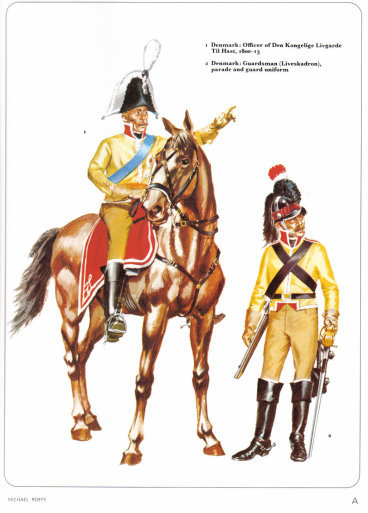
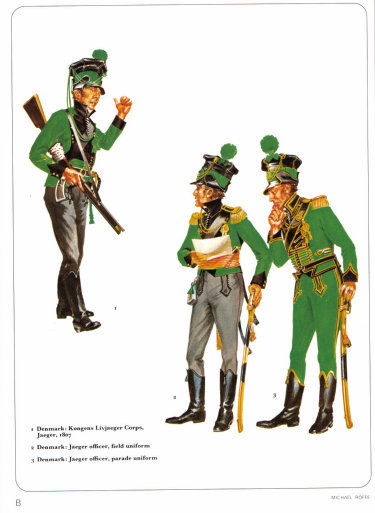
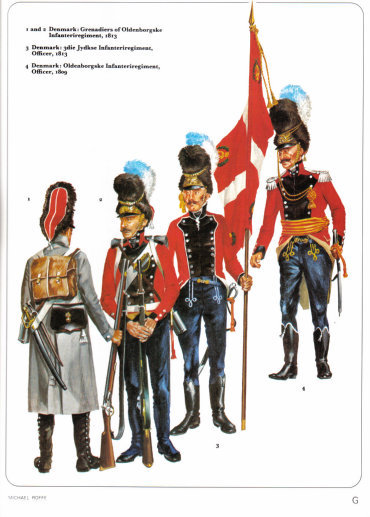
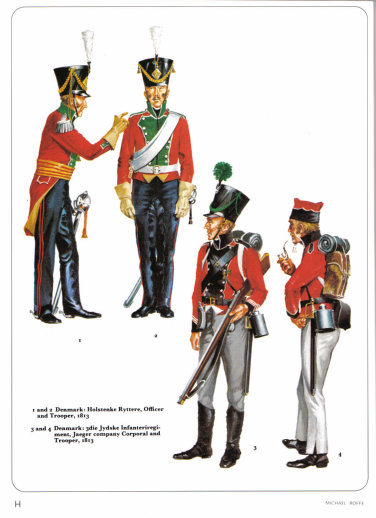
“At the commencement of our sojourn in Denmark,” Paul de Bourgoing remembered, “we became witnesses to a very grave event. It was in 1801, when the beautiful and peaceful capital of a country that had until then remained a stranger to the wars which had bloodied the whole of Europe was shocked by the sudden appearance of an English fleet that threatened to bombard and burn this royal residence and rich commercial entrepot."
During the Napoleonic Wars, Denmark initially remained neutral but was forced into conflict after Britain bombarded Copenhagen in 1801 and 1807, seizing its navy. In response, Denmark allied with Napoleon, fighting against Britain and Sweden. However, after Napoleon’s defeat, Denmark was forced to cede Norway to Sweden in 1814, weakening its position in Europe.
From "Scandinavian Armies in the Napoleonic Wars"
@hoppityhopster23
#history#military art#military#1800s#napoleonic era#napoleonic wars#soldier#cavalry#napoleon#Denmark#British history#Danish history#Britain#Great Britain#British Uniform#Danish Uniform#horatio nelson#Bernadotte did not do nice things to them when he became crown-prince
37 notes
·
View notes
Text
Asawin Suebsaeng at Rolling Stone:
Donald Trump has been back in office for less than one month, and he, Elon Musk, and his senior administration officials have already plunged the nation into an ongoing constitutional crisis and openly performed various brazen acts of lawlessness and gleeful corruption, while threatening to “look at” judges who object to his onslaught against the U.S. Constitution and legal limits on his power. On Saturday afternoon, during Presidents Day weekend, the twice-impeached president and convicted felon was, to his credit, honest about it: He believes he’s allowed to break any law he wants. “He who saves his Country does not violate any Law,” Trump posted online — not just once, but twice. The president felt strongly enough about the sentiment (which several observers pointed out appeared to be based on an apparently fake quote from Napoleon) that he blasted it out on his own Truth Social site as well as his account on Musk’s platform X, formerly known as Twitter. A White House spokesperson did not immediately respond to a message seeking further comment on Saturday. Trump’s statement bears obvious resemblance to disgraced President Richard Nixon’s infamous line about how “when the president does it, that means that it is not illegal.” Like Nixon, Trump has now explicitly stated that he believes he is simply above the law, as any Mad King or debauched emperor should be. If he’s doing or ordering something that he then says is “saving” the nation, as the logic goes, constitutional limits and legal restrictions don’t apply. It does not hurt his and his party’s cause that the Supreme Court’s conservative supermajority agrees with this premise in many ways. Just last year, the court’s conservative justices blessed Trump’s claims to sweeping presidential immunity, ruling that the president is immune from prosecution for any and all official acts committed as president. And it certainly doesn’t hurt Trump that virtually the entire Republican Party and conservative movement elite are on his side, quaint things like laws be damned.
Tyrant 47 posted onto Truth Social this past Saturday a quote that was falsely attributed to Napoléon Bonaparte: "He who saves his Country does not violate any Law."
These are the deranged rantings of a mad tyrant who is hellbent on eroding constitutional rule in the USA.
See Also:
The Guardian: Trump under fire for likening himself to Napoleon amid attacks on judges
36 notes
·
View notes
Text
It is important to know what you all think your Napoleons are most threatened by
#‘why isn’t my fav here?’#napoleon had a lot of enemies okay I had to make executive decisions#Napoleon
66 notes
·
View notes
Text
I just realized something: After the battle of Valutina Gora, when Napoleon threatened to take command of 8th corps away from Junot and give it to Rapp, and Rapp refused and together with some other folks succeeded in calming Napoleon down, this may only have been for the moment. At the battle of Borodino three weeks later, Junot was apparently under tutelage: Ney in his official report - that was published together with the bulletins - says that Napoleon had put 8th corps under Ney's command. The reports of all commanders are cited after the bulletin - Junot is not among them.
I can see why Junot was disheartened. But also, this must have been a real problem for Laure when she was writing her memoirs. There was no way she could criticise the guy who by the late 1820s had already taken on the role of martyr and THE hero of the Russian campaign. No matter if he had "stolen" her husband's potential laurels.
#napoleon's marshals#michel ney#napoleon's generals#jean andoche junot#russian campaign#battle of borodino#napoleonic era#napoleonic wars
31 notes
·
View notes
Note
https://www.tumblr.com/wdcln4/782739600124854272/lando-built-that-team-just-for-piastri-to-be-the?source=share
wdym lando "built" the team. he just stayed at mclaren longer and is still losing to his less experienced teammate. if seniority matters, lance should be aston's main driver. hes been around longer. hes "built" the team. just because you're around longer, doesn’t mean jackshit if your teammate in his third year has more wins than you in your sixth year
lando is cordial at best. and he's just pitying and victimising himself. and why should oscar care if lando did better than him? this is f1. you are here to win.
hungary wouldn't have been a problem if lando had the championship mentality. imagine if you ask lewis or max to let their second driver through. they wouldn't. he just dragged the drama out longer and made oscar feel bad for his first win.
also all of last year was "lando is threatening max for his world championship" when he won 3 races (not counting abu dhabi cause the wdc was already won) and charles was more close to lando, than lando ever was to max.
https://www.tumblr.com/wdcln4/782742738728796160/also-can-we-talk-about-the-fact-mclaren-literally?source=share
also its oscars sixth win in 3 years. one more than lando in six years.
and everyone is crowing him as the napoleon because he is the first mclaren driver in years to win 3 races in a row since mika hakkinen.
1. built? that was maybe too strong word, but on the other hand, yes built. when lando joined mclaren the car was dogshit, strategy were disasters etc.
Oscar joined in 2023 (not mentioning the fact they literally fired danny ric) and had everything lando helped to develop over the years.
2. if you have no arguments left just use “lando doesn’t have championships mentality” cuz lol? 😂 if he didn’t listen and didn’t gave his position he would be selfish asshole, and when he did it, he has no championship mentality.
3. imagine everyone crowning max like that back in 2023 after every win, after he won like 19 races, you guys would be SICK of it 😭 so three races is nothing
#mclaren is bunch of idiots#mclaren formula one#anti mclaren#anti stella#anti piastri#ln4#lando norris
20 notes
·
View notes
Text
We are thanking @aquagirl1978 for this.
At the Bronx zoo, they are letting you name a cockroach after someone and you get a little certificate for doing so.
So let's imagine MC doing this for the guys. She prints out the little certificate and gives it to them all cute like.
Napoleon
"You...did what?" Looking at the certificate wondering if he's reading it wrong.
"I named a cockroach after you"
He just looks at you. Very confused. Not sure if it's meant to be endearing or semi threatening.
"...You still love me, right?"
"of course!"
Mozart
"....."
"Do you like it~"
"That..is.. DISGUSTING!"
You laugh as he throws a small tantrum.
"COCKROACHES ARE DISGUSTING. WHY WOULD YOU NAME ONE AFTER ME?"
"Because cockroaches are forever like our love~"
"....."
"I got the matching socks too"
"get those away from me"
Leonardo
"..a cockroach?"
"a hissing cockroach!"
Leonardo is just looking at the certificate. "I've been called worse things" shrugs and hangs it up in his wall
Vincent
"aww. Thanks" he smiles at it and you even got him the cockroach plushie to go with it. You knew he would like it. He's going to go paint the two of you as cockroaches now, and going on a date
Theo
Mildly offended. "Why a cockroach?"
"Why not. It hisses and so do you. It seems fitting"
Still offended and is convinced you could have chosen a different animal/insect but decided on the cockroach for who knows what reason
Arthur
You know he goes all out for Valentine's Day as it is. So when you just hand him the certificate he's a little confused.
"I named a cockroach after you!"
"..is...is that a normal thing in your country?"
"nope!"
He's wondering if this is a warning.
"I got us matching roach socks too!"
Isaac
Boy probably shrieked a little when seeing a cockroach on the paper. "WHY???"
"I thought it was cute"
"WHATS CUTE ABOUT A COCKROACH?"
"They hiss!"
He screams again. But then you made him sit through the virtual encounter and he screams a little when it hisses
Jean
Handles it better than you expected honestly. For a split second you thought he would be confused "so this is how people celebrate Valentine's Day? They name bugs after each other"
"not exactly. I thought it would be a funny gift."
You got him the plush and he's holding it like a baby and he carries it around all day and tells people it's name is also Jean
Dazai
"Aww. I got you the same thing"
You were SHOOK
Dazai also handed you a certificate. Needless to say he enjoyed being named after a cockroach. You're the one a little upset by it
Shakespeare
He's telling you about how he is taking you to this nice restaurant. He even got you a new dress to go out in. And then you hand him a box with the certificate and the plush inside.
"a... cockroach? You named a cockroach after me.."
He's wondering if he's done anything wrong and you did this because you're mad at him.
Comte
He has no clue how to react. He bought you fancy chocolates and nice wine. Probably a new gold necklace. And he got matching roach socks and a certificate. He's probably a little concerned on how you were able to do this and why you wanted to. But he's putting on the socks right now
Sebastian
Probably sees the humor in it and thinks it's funny. He's oddly excited about the virtual encounter. Meanwhile he probably found a site where you can name a worm after your loved one because of the meme "would you still love me if I was a worm"
Vlad
He thought you would pick something more elegant than a cockroach. Maybe something fluffy. Not a cockroach.
"Roaches are forever, like our love, and you"
Vlad now thinking roaches are immortal and is curious about them. This isn't what you planned. But he is very touched by this
Faust
"....you got me a cockroach?"
"no..I named one after you"
"why would you-" so very confused. He definitely hangs it up in his lab. It keeps his ego down tbh. You start calling him your little cockroach since he calls you a guinea pig
Charles
Slightly disturbed at first but is definitely here for the matching socks.
"didn't have to be a cockroach? I think I'm cuter than a cockroach"
"you're the cutest cockroach"
But then you watch the virtual encounter and he screams a little when it hisses. He wasn't expecting that
Drake
"aww you got me a gift?" Sees the certificate. "...a roach."
"because our love will never die~"
This is his first Valentine's with you and you named him after a roach.
"Is this a modern thing people do?"
"not really. Just a funny thing"
He's thinking you are trying to offend him but he's actually enthusiastic about it
Galileo
Didn't even want to do anything for Valentine's but you hand him an envelope and he sees the certificate and he gets very confused.
"happy valentine's day~"
"... I think I'm a little above a roach"
"you both seem to hiss when touched so I see no difference"
That shot his ego down
#ikevamp#ikemen vampire#ikevamp napoleon#ikevamp mozart#ikevamp leonardo#ikevamp vincent#ikevamp theo#ikevamp arthur#ikevamp isaac#ikevamp jean#ikevamp dazai#ikevamp shakespeare#ikevamp comte#ikevamp sebastian#ikevamp vlad#ikevamp faust#ikevamp charles#ikevamp drake#ikevamp galileo
196 notes
·
View notes
Text
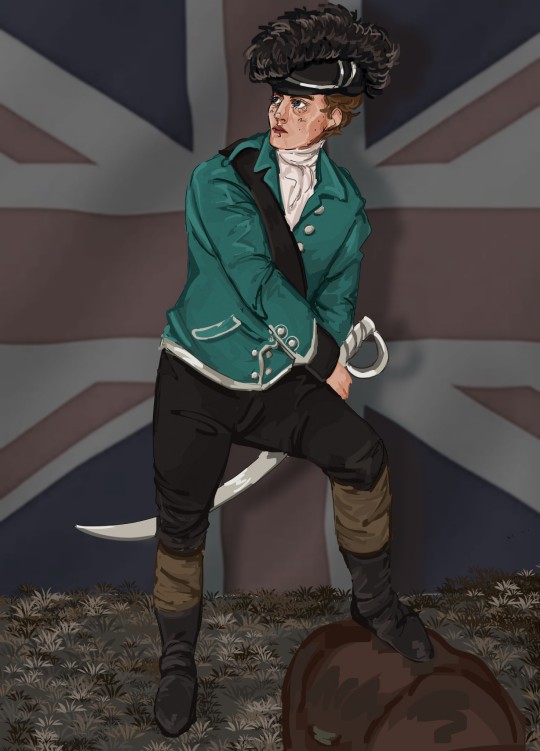
"Arrogant, ruthless, and by all reports (including his own) utterly charming."
(I don't know why I drew this but please take Revolutionary War British officer George, I think it suits him, okay!!!)
+ George Russell the type of guy to t-pose in front of rebels
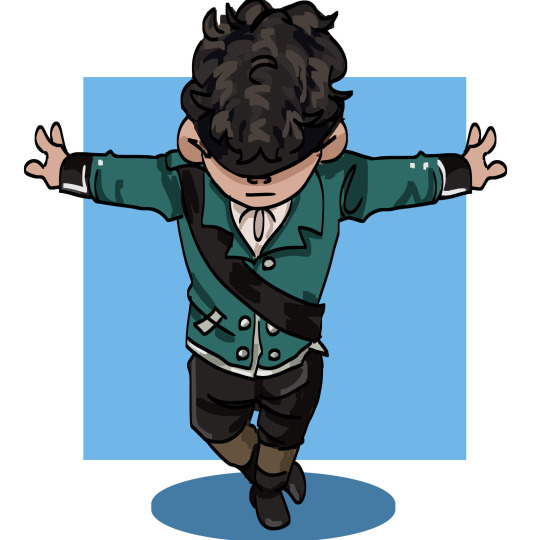
+ the usual
Okay first of all, process, as always:

I drew this in one day hahaha....Actually really fun! I haven't finished anything in almost a month, and haven't painted for even longer, so I'm kinda dying at the fact that 18th century George Russell got me motivated 😭 Sometimes when painting, I realize I have free will and can actually just start painting over the lineart, and that's the best moment of every drawing process 🙏
Also I'm very proud of his face!!! I've said before, but art progression is such a weird thing. You'll keep repeating to your self "I'm no good at [insert art thing.]" And then randomly realized you can in fact do it. That's me with drawing real people's faces 😭 I'm just so shocked I got his face pretty good in one try!!!
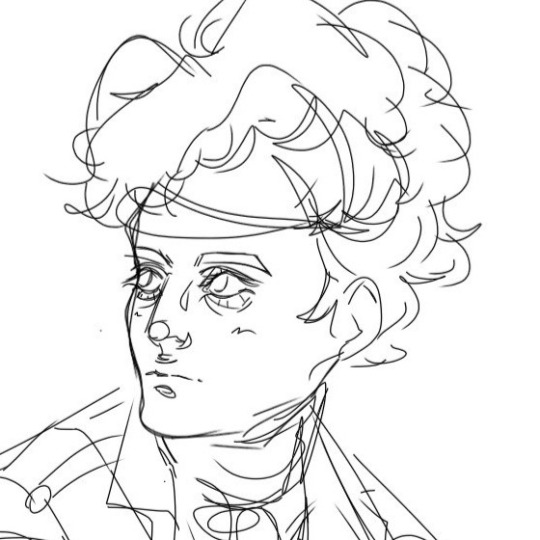
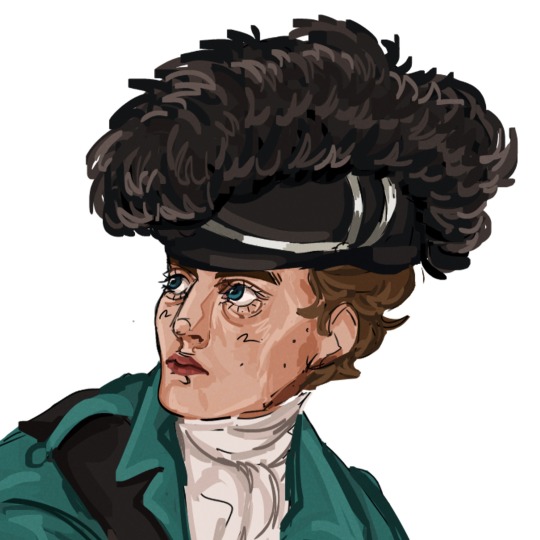
Okay about the pose and quote. God its so fun to misappropriate quotes for my own evil deeds. Both of these are from this one officer from the Revolution: Banastre Tarleton. Idk, I randomly saw his painting in a history video, and it's stuck in my mind ever since. And then yesterday, bcs I spent a lot of time looking at George, I'm like "hey you know what he kinda reminds me of-" and thus we have this.
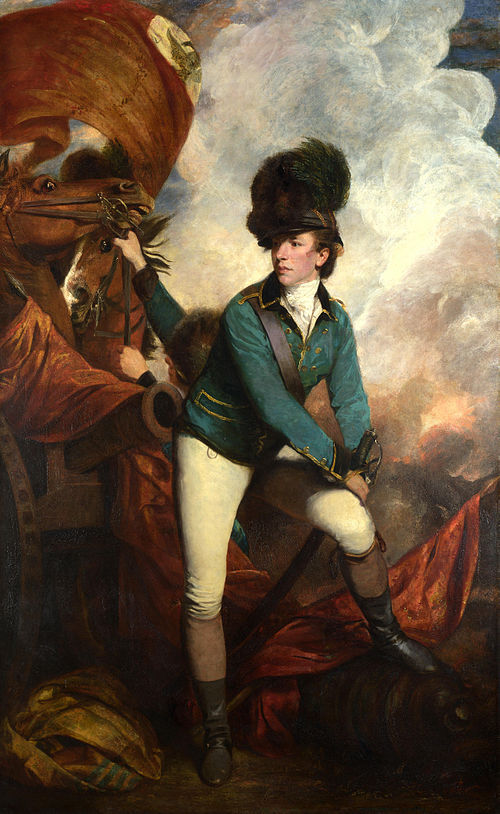
I just found that quote about him from some historian to be funny, so I put it as a caption, as I would with Napoleon. This won't be an AU by any means but. I think if George was in the Revolution, he'd be the most stereotypical, evil British villain in American media type guy ever. And Tarleton is kinda that guy tbh, to the point where him and others like Arnold Benedict are the poster boys of evil Revolution guys. He even has a mocking nickname! "Bloody Tarleton/Ban", very "Osama bin Russell," no? 😭
Some notable moments from Tarleton's campaign that I think fit George: Apparently killed a bunch of American soldiers after they surrendered, making sure everyone was dead(😭😭), threatened to burn an American general's house down to make him surrender and then took him hostage, went toe to toe with George Washington himself and Washington even taunted him and Tarleton got a shot in, has a helmet named after him(very slayful.)
#me rushing to finish this before the race as if its in any way relevant HDJFKGLVLV#please take my historical art ty <3#i just always draw these out of left field things as some sort of blood sacrifice idk#but wow hey!!! a drawing of someone that isnt the same 4 drivers i always draw sjfkkg#atp i should consider doing requests- sure bud.#i was gonna leave who this is referenced off a secret#and be like. whoever knows which painting this is referenced off of ill draw you smth!!!#but i like the lore too much....#i cant resist writing up niche historical stuff its like an addiction#gah george has really crept up on me and this is the final straw djfkkg#as suzuki said to me 'as soon as you make 18th century comparisons. its so over'#VERY TRUE YES.#anyways take comically evil slayful british officer boy George#i hope this isnt way too niche 😭😭 but i know it is already deep in my heart#f1#formula 1#george russell#gr63#f1 art#f1 fanart#formula 1 fanart#catie.art.#also idk how to feel abt drawing smth so british 😭 ...i feel dirty...i feel blemished JDKFKGKGLB#unfortunately i dont think i could draw any drivers as american revolution war heroes 😔#so my only food is comically evil brits. its fine. its ironic.#teh flag is like. the way George is concerned abt the British crown irl okay. 😭
84 notes
·
View notes
Text
Pleasure - Lettow Kaminsky

Commissioned art by @medeaft

Author's Note: Lettow is a character I’ve always wanted to write for, so it was only fitting that the prompt, Guided by Pleasure, inspired me to finally attempt a piece. It might be rough around the edges, but I found meaning in the overall process.
What are the things that bring one pleasure? Lettow reflects on his past life in an effort to find the answer.
Content Warnings: Brief references to violence, depression, suicide by proxy, Aila mention, war.

An Elder.
That’s what they call us these nights. I haven’t gotten used to it; I don’t think I ever will. It is a word that has connotations. As for what they are, I will let you decide. They say I am a creature of habit, a creature tied to the past, and perhaps they are right.
I remember events of my former life as if it were yesterday. The feeble trappings of youth born into privilege, where the world lay naked before me with so much hope and potential. Pleasure, when my eyes trailed the curls in her hair, the curve of her waist, settling on her shy, bright smile. Her upper lip covered a section of her teeth; she didn’t like the way her gums showed when she pulled it back. A brief pause—before she would place a hand before her mouth in childlike embarrassment.
Our world was filled with clandestine meetings. The velvet night sky covered in a blanket of stars. Sweet whispers of promised love under the shade of a silver birch tree. The smell of wintergreen in the twilight hours, freshly-cut grass and morning dew. Spring. The days grew light and crisp. Early morning rays filtered through veils of gossamer mist that steamed from the ebony earth. There was movement in the forest again. I truly believed I would wed then.
I remember wild horses in the lowland plains. We tracked a herd of them all the way along the winding belt of the lake. Hooves galloping on soft ground like the rhythmic beating of my excited heart. Every once in a while they would greet us with a majestic sign of their rearing. I was still a boy back then, and I thought like one. Ruddy and hot-blooded. Eager for a taste of adventure. We followed them until they grew tired and slow. Presented food and water as peace offerings, moving like statues so they wouldn’t spook.
I went out to find them every day, until they came to find me instead. They knew they would be fed well and groomed. We observed each other with measured steps, like in a period of courtship, and one-by-one they allowed me to inhabit their world. I led them by the halter to the corrals we had built, talked with them as they neighed in response. The others said my methods would take too long, but I wanted to earn their trust. And that I did. The most feral of the lot I named Napoleon.
I remember the first time I flew. I never thought I would live to see the age of aviation, but here I was. The gust in my face and the whir of the engines so loud they drowned out any sound in my surroundings. I was wrapped up in a protective bubble of white noise. The air became thinner the higher I rose in altitude, but no less difficult to breathe. Through my goggles, I could make out endless miles of clouds in the vast horizon, tasting them like icicles on my tongue as I passed by. This was my world now—this beautiful, strange stratosphere that reflected the oceans below.
We trained under the cover of night at one of the civilian schools. Boxed up in small, rudimentary planes that rattled you to the core and threatened to fall apart. It was unorthodox, but we improvised. Nothing that a simple bribe or other machinations couldn’t fix. I was, by that time, what I am at present, which had both its benefits and drawbacks in the war. Perhaps I have retained whatever human that is left inside of me, since from time to time I thirst for battle, just like the appetites of mankind have for centuries, unsated.
I served in the French Air Force during the First World War by choice, flying infant Nieuports before the SPAD S.XIIIs streamed in, their synchronized twin Vickers ripping into rival aircrafts at record-breaking speed. I rode the SPAD like I would with Napoleon, faster than the wind, weaving through jet streams like a paintbrush on canvas, dipping, twisting, and soaring across the sky as though I were a danseur étoile. I can tell you now that it was by far the most glorious feeling I have ever experienced. I learned to fly before I learned to drive, and I have never regretted it.
And then, there was Aila. I remember her so vividly I can feel her very presence in this room, hiding behind one of the doors; I just need to open the right one. An ocean of memories she left behind, scattered among the trinkets and mementos that line the hall. Flying led me to her, and she, in turn, led me out of the desert. The desert where we had walked for miles under the pale moonlight, licking our wounds as we grew mad with hunger. We lived several lifetimes together, wandering across the world like there was no tomorrow, claiming every piece of uncharted territory for ourselves, all because of that fateful night. It was highly irresponsible and romantic. It was our way of staving off the inevitable—what was another couple of decades when we had an eternity to fill?
I remember her rich dark skin, basking in the bronze glow of her almond-shaped eyes, peeking out from beneath the brim of her straw sun hat. They were proud and fearless as they should be. Her flowy linen dress. White on white, matching mine. Yet turquoise is the color that reminds me of her. The cool slab of robin egg blue against my skin quelling the fire. Sky blue. Her happiest moments were in the air, nimble hands on the controls, and she laughed as though she still had a heart. It’s the small details that I remember, these curious, odd specificities. Sometimes, I think she merely entertained me, but it didn’t matter. My world was Aila’s and hers was mine.
But happiness, like spring, is fleeting. The girl I was betrothed to became something other than herself. A sick rot festered from within, permeating between the cracks of her skull. She ate like a bird. Whiled away the hours in bed. I could not rouse her from her listless slumber. The Devil whispered silent words in her ear, had her mind in its pestilent grip, until she could no longer bear it. There was no way out. No other way than to drown a child in the nearby river so as to guarantee her finality. They have a name for it these days, but in that period, austerity and fear were all we had ever known. At her beheading, the local folk threw coins onto the scaffold for a chance to dip their handkerchiefs in her blood. I wept bitterly in the corner. Dead foliage rustled in the breeze. Fall had arrived, and I had failed to prevent it.
I had nothing left to lose in the uprising against the partitioning powers. As I said, I was young and foolish then. I fantasized about the victory of battle, as well as the honor of dying in one. It was the only way I would be willing to go. But even that was robbed from me. Napoleon was my war horse, and together, we became part of the doomed cavalry. The follies of idealism, but perhaps in hindsight, it might have been my subconscious wish to die. As we lay fallen, the smell of gunpowder and sweat hung heavy in the air, with only the sound of our ragged breathing for company. I felt the life drain out of me onto the mud and rubble as my hand made a bloody imprint on Napoleon’s side. It had been sliced open, brutally, without care. I heard him sputtering; he was cold. My fingers were turning to ice. The massacre before me faded into darkness.
I was Embraced around the same time my country died. Since then, I have fought countless wars, each more unlovely than the other. I no longer dreamed of being heralded as its champion. New leaders were ushered into power vacuums, only to be dethroned the next day by their associates. I had seen it all, played out again and again—the drudgery of senseless wars and the stench of death. Among mortals, among Kindred. Even flying could not console me from the fact that we were no better than beasts. I have killed hundreds from my time in the air force alone, shot down children manning machines that were not fitted to size, and I have always regretted it.
The war led me to Aila, and she, in turn, led me into the new world. Perhaps we could finally leave the past behind. I showered myself in turquoise; we made plans to travel, to always be on the move, like the bieguni—the runners, who avoided the Devil by staying in no place for any significant amount of time. I should have known that it would be all the time that we had. Every place that we went to, everything that we loved and cherished, was burned and razed to the ground. We could not escape from the aftermath of the seeds we had planted. Fall returned, and I saw the light from her eyes extinguish. She found no pleasure, no meaning, in anything. I recognized the signs in her as clear as day from my first love, but I had failed to prevent it.
White on white.
I buried her in the West, under a city built upon another desert. Lake blue stones on her eyes and in her mouth. Yet, even what remained of her was wrested from me—
You see, I have come to realize the cycle we are trapped in. Things change, memories fade, love is fickle, cities crumble, new leaders arise. But it all leads back to the pendulum between pleasure and misery. Being an Elder doesn’t mean being out of touch. Being Elder means you have the foresight to know what will happen next. Because history repeats itself time and time again.
I am Lettow of Bracław and I remember, I remember.

Dividers by @diableriedoll
#prince lettow#lettow kaminsky#gangrel#vtm night road#vtmnr#vtm#vampire the masquerade#world of darkness#my vtm writing#porcelainscribbles
38 notes
·
View notes